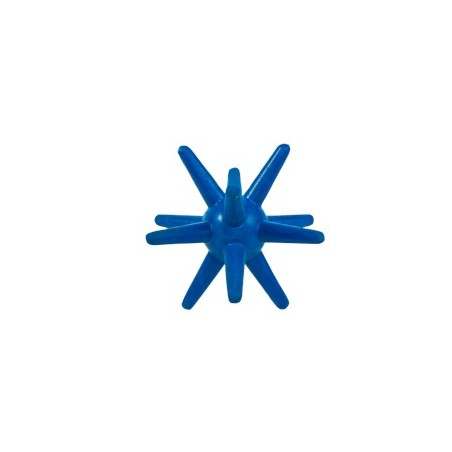Painful processing procedures in piglets such as tail docking, castration, and teeth clipping are an emerging animal welfare concern. We hypothesized that transmammary delivery of a nonsteroidal anti-inflammatory drug, firocoxib, would reduce pain associated with processing in piglets. This study compared the pharmacokinetics, efficacy, safety, and tissue residue concentrations of 4 doses of firocoxib (0.5, 1.0, 1.5, or 2.0 mg/kg) administered to sows and delivered to nursing piglets prior to processing. Sixteen sows, 5 ± 2 d postpartum, were randomly assigned to 1 of 4 treatment groups. On day 0, sows received a single intramuscular dose of firocoxib at 7 ± 1 h before piglet surgical castration, tail docking, and teeth clipping (males) or sham handling (females). Firocoxib and cortisol concentrations were determined from selected samples collected from sows and 3 piglets per litter (2 barrows and 1 gilt) at 0, 2, 4, 6, 8, 12, 24, 48, 72, 96, and 120 h after drug administration. On day 21, piglets were weighed and all animals were euthanized and necropsied. Tissues were collected from 3 piglets per litter for histological examination and drug residue analysis.
Mean (±SEM) peak plasma firocoxib concentrations (Cmax) were 107.90 ± 15.18, 157.50 ± 24.91, 343.68 ± 78.89, and 452.83 ± 90.27 ng/mL in sows receiving 0.5, 1.0, 1.5, and 2.0 mg/kg firocoxib, respectively, and 9.53 ± 1.21, 31.04 ± 6.79, 53.30 ± 11.1, and 44.03 ± 7.47 ng/mL in their respective piglets. Mean plasma terminal half-life values ranged from 26 to 31 h in sows and 30 to 48 h in piglets. Barrows nursing sows that received 2.0 mg/kg firocoxib had a lower mean plasma cortisol concentration at 1 ± 1 h after processing compared with barrows nursing sows that received 1.0 mg/kg and 0.5 mg/kg of firocoxib. From processing to weaning, litters of sows receiving 2.0 mg/kg firocoxib gained more weight than litters of sows that received 0.5 mg/kg or 1.0 mg/kg. No signs of nonsteroidal anti-inflammatory drug toxicity were observed on examination of the kidney, liver, stomach, and small intestine, and concentrations of firocoxib and the descyclopropylmethyl metabolite were below the limit of detection (0.01 µg/g) in all tissues examined from sows and piglets.

These findings indicate that maternal delivery of firocoxib to suckling piglets before tail docking and castration may safely reduce processing-induced stress and enhance production by increasing weaning weights.
Coetzee J, Sidhu P, Seagen J, Schieber T, Kleinhenz K, Kleinhenz M, Wulf L, Cooper V, Mazloom R, Jaberi-Douraki M, Lechtenberg K. Transmammary delivery of firocoxib to piglets reduces stress and improves average daily gain after castration, tail docking, and teeth clipping. J Anim Sci. 2019 July. https://doi.org/10.1093/jas/skz143




